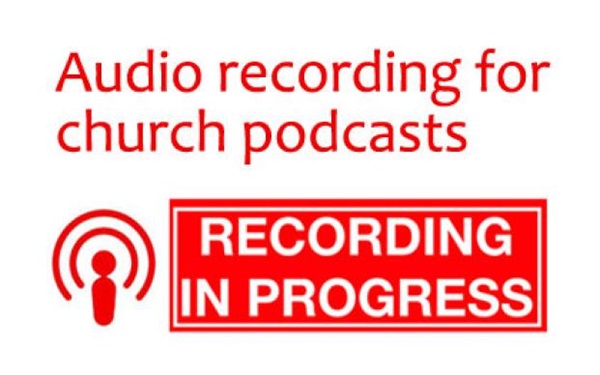If you followed our advice to get your podcast up and running, it's time to listen carefully and make sure you are recording great audio. Here is what you need to consider.
The Recording Device
Deciding what you will use as a recorder determines a lot. Most tablets and phones have apps to record audio and can accept audio through the headphone jack. The drawback is that you have limited file space and moving your file from the device to the web will often require putting your file onto a computer. However, the ease and availability of these devices make them a simple, quick way to record that most churches can implement quickly.
On the flip side, recording podcast-type audio is not labor intensive. Most computers sold in the last five or six years can handle it at a basic level. In addition, most of the places you might choose to host your files online will have a web-interface optimized for use on a traditional desktop or laptop.
From Sound Board to Device
A microphone is already picking up your pastor’s voice and running it to the soundboard, so how do you move it into your digital recording device? The simplest solution is to spend $7 or $8 dollars on a cable that will convert output from your soundboard into the headphone jack available on most devices. If you are using an iPad or an iPhone, you will need to step up to an iRig device as their input requires a special type of headphone jack.
REMEMBER: When getting sound into your device, it's important that you do not take the signal from your amplifier, but from an aux, subgroup or matrix on your board.
This will give you the basic input, but you may find that the audio quality is difficult to control and may not be as good as you had hoped. To bump up the quality level, spend about $100 on a signal adapter like the Shure X2u to make a high-quality conversion from analog to digital signal. The adapter will limit you to recording on a computer, but it will plug right into the USB port, and allow you to monitor the feed for noise or distortion with a separate set of headphones plugged into the adapter. This device also allows you to plug additional microphones into your computer for other interviews, voice-overs, etc.
Recording
You will also want a good, simple audio editing program that will allow you to edit multiple channels at the same time. Apple includes an excellent free choice on all its laptops, desktops and iDevices. If you are looking for a PC program, Audacity is an excellent free choice that is also available for Macs.
Once you have your editor installed, test your audio before recording. Adjust the levels so that they generally stay out of the red zone on the volume indicator. Once you have adjusted, it's time to record.
Editing: The Final Polish
While you can simply export the file you have and upload the raw content, spending about five to ten extra minutes each week will add a professional touch and help those listening have a more positive experience of your church. Each week, clip the extraneous bits from the sermon and add an intro and outro. You can either record unique ones each week or pre-record a standard welcome and thank you that you drag and drop into the editor and stick on the ends of the sermon.
To take your recording to the next level, put some original or royalty-free instrumental music behind the intro and outro with a nice fade-in and fade-out. Now, you have a podcast worthy of anyone’s ear buds. If you are looking for free stock music, you might find it labeled "loops" in your editor or check out a site like Audionautix.
All that's left is to click “export” and upload your file to your host. You are ready to reach people unable to make it to your service, those who have moved away or others all over the world who are simply interested in what you have to say!
________________________________________________________________________________________________________________________________________________________
Podcasting is a ministry. United Methodist Communications uses podcasts to inform, encourage, motivate, inspire and engage followers of Christ--and we are resourcing churches to do the same. These efforts require financial support. If you believe in our mission, consider a tax-deductible donation to the work of United Methodist Communications through its Foundation at ResourceUMC.org/GiveUMCom.

